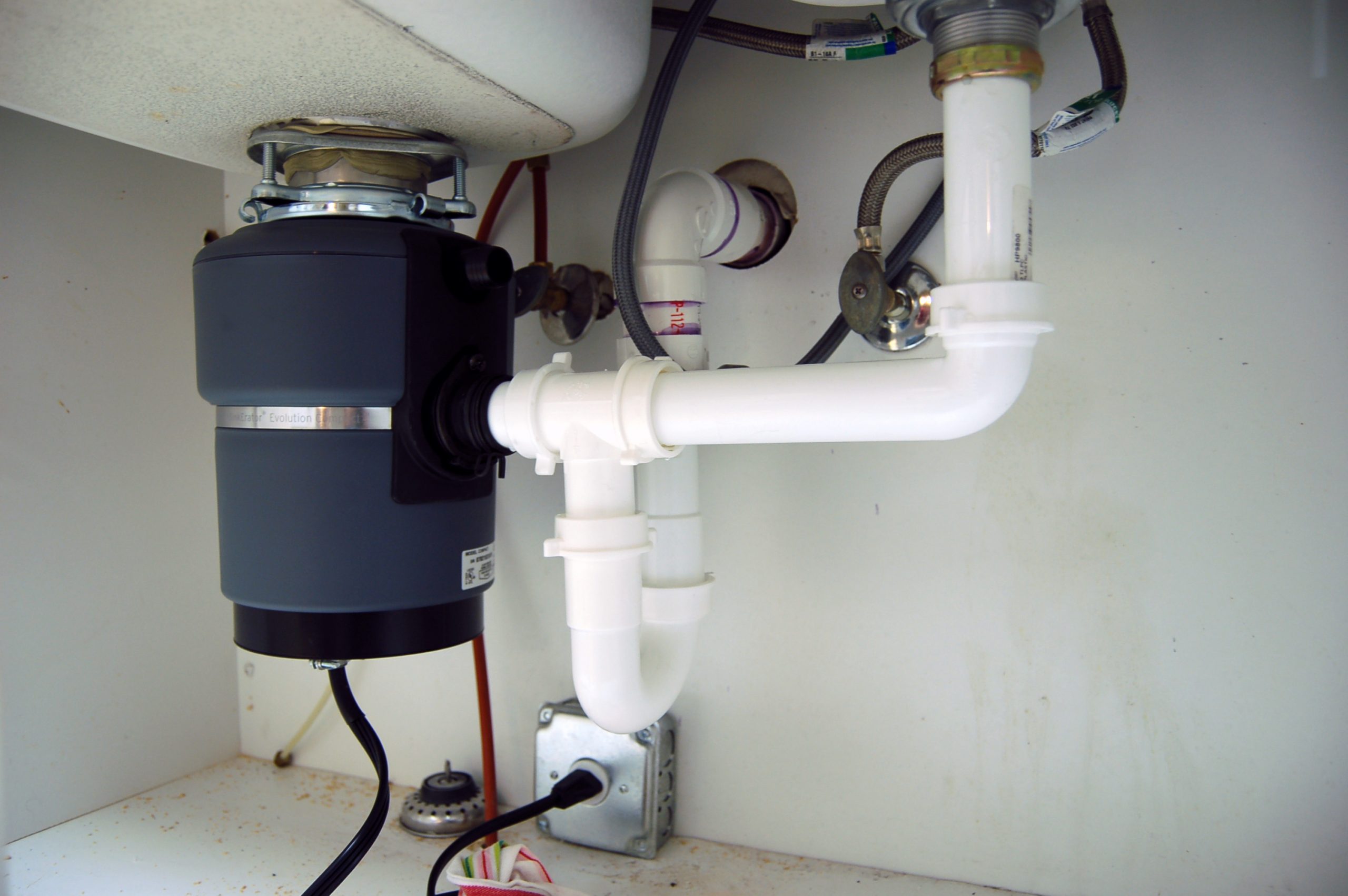Step-by-Step Instructions for Repairing a Leaky Waste Disposal
Step-by-Step Instructions for Repairing a Leaky Waste Disposal
Blog Article
They are making a few good pointers regarding Garbage Disposal Leaking From Bottom in general in this content followed below.

Garbage disposals are necessary kitchen home appliances that aid in throwing away food waste successfully. However, a leaking garbage disposal can be an irritating and messy issue to take care of. Luckily, lots of leakages can be dealt with conveniently with a couple of basic steps. In this short article, we will discuss just how to deal with a leaking garbage disposal efficiently.
Introduction
Garbage disposals are set up under kitchen area sinks and are made to shred food waste right into smaller sized pieces, enabling it to pass through the plumbing system conveniently. While these tools are usually dependable, leakages can happen over time due to deterioration, loosened connections, or damages to the unit.
Step-by-Step Guide to Fixing a Leaking Waste Disposal Unit
Turn Off the Power
Before trying any kind of repair work, make sure that the power to the waste disposal unit unit is shut off to avoid the danger of electrical shock.
Situate the Leakage
Identify the exact location of the leak and identify the cause
Tighten Connections
Use a wrench to tighten any type of loose connections in between the disposal device and the pipes system.
Replace Seals or Gaskets
If the leak is due to used seals or gaskets, get rid of the old elements and replace them with brand-new ones.
Patching Splits or Holes
For cracks or openings in the disposal system, use epoxy or an ideal patching product to seal the broken area.
Recognizing the Source of the Leakage
Prior to attempting to take care of a leaking waste disposal unit, it is essential to determine the source of the leak. This can commonly be done with visual examination or by carrying out easy examinations.
Visual Assessment
Evaluate the garbage disposal device very carefully for any kind of indicators of water leak. Pay close attention to locations around seals, gaskets, and link points.
Evaluating for Leakages
One means to test for leaks is by running water with the disposal system and looking for any kind of noticeable indicators of leakage.
Typical Sources Of Leakages in Garbage Disposals
Worn Seals and Gaskets
Seals and gaskets play an important function in avoiding water from leaking out of the waste disposal unit. With time, these elements can weaken, resulting in leaks around the disposal device.
Loose Connections
The links in between the garbage disposal and the pipes system can end up being loosened gradually, causing water to leakage out during procedure.
Cracks or Openings in the Disposal Unit
Physical damages to the garbage disposal, such as fractures or openings in the housing, can additionally result in leaks.
Devices and Materials Needed for Taking Care Of a Dripping Garbage Disposal
Before starting the repair process, collect the essential tools and materials, including a screwdriver, flexible wrench, plumbing professional's putty, replacement seals or gaskets, and epoxy or patching material for fixing fractures or holes.
Examining the Garbage Disposal After Fixing
As soon as the repair is complete, evaluate the garbage disposal by running water with it to make sure that the leakage has been resolved.
Preventive Upkeep Tips to Stay Clear Of Future Leakages
To prevent future leakages, it is important to do normal maintenance on your garbage disposal. This includes keeping it clean, preventing putting non-food products or difficult objects down the disposal, and occasionally checking for leaks or other concerns.
Verdict
To conclude, taking care of a leaking waste disposal unit is a relatively uncomplicated process that can be finished with basic tools and products. By following the steps laid out in this short article and practicing preventative upkeep, you can keep your garbage disposal in good working problem and stay clear of pricey repair work in the future.
Why is my garbage disposal leaking?
Why is my garbage disposal leaking?
Garbage disposals are a great tool in your kitchen.…when they work. They make cleaning up after meals easy but when it eats your wedding band, malfunctions, or breaks, that’s another story altogether.
So, you’ve noticed your garbage disposal is leaking? Let’s discuss the DIY steps that can be taken and when you need to call in the professionals.
Garbage Disposal Leak Investigation
You will want to begin by locating the source of the leak. Is the leak coming from the connection between the sink and the disposal unit?
Check the Connection
If this connection is loose or damaged, water can leak out of the bottom of the disposal. You can attempt to resolve this issue by turning off the power to the disposal and tightening the mounting bolts that hold the disposal to the sink.
Check the Gasket
If you check and the bolts remain tight, it’s possible that you need to replace the gasket between the sink and the disposal. At this stage it may be time to call in the experts.
Check the Seal
Another culprit might be a worn out seal. Over time, parts deteriorate and can result in leakage. To replace a seal, you’ll need to disconnect the disposal from the sink, remove the old seal and put on a new one. Then reattach the disposal unit.
Check for Cracks in the Disposal Unit
In some instances, leakage can be the result of a crack in the disposal unit. One sign might be a garbage disposal leak from the bottom. In this case, you simply have to replace the entire unit. There is no way to fix a crack in a disposal unit or fix a damaged unit. The only answer is to replace it.
How can I prevent garbage disposal leaks in the future?
As a general rule, avoid putting objects into the garbage disposal that are hard, like bones, or fibrous, like celery. Both hard objects and fibrous materials can damage the disposal blades and cause leaks.
It’s important to remember you should run cold water while using the garbage disposal. There is a common misunderstanding that using hot water is sensible. This is not the case. Running hot water while operating the garbage disposal can result in causing grease and grime to solidify and clog the disposal.
https://www.frontdoor.com/how-to-tips/articles/how-to-fix-a-leaky-garbage-disposal

I'm certainly very drawn to Why Is and I'm hoping you enjoyed reading my blog entry. Sharing is good. Helping others is fun. Thanks so much for your time invested reading it.
Click Here Report this page